Alec Soth: We started out with this idea of going out into America – the hot-action, Weegee-style press photographer – to shoot in these places without a lot of action. I was drawn to this because it is sort of my world. I’m no Weegee – I’m not a Jewish, cigar-smoking Lower East Side character. But there’s Weegee on the one hand, and there’s Robert Adams on the other. For me, they are like the good angel and the bad angel – I have one on each shoulder. Adams is the good angel, the ethical photographer, who’s also cynical about society and its decay. And the flipside is Weegee, whom I think of as kind of unethical. Someone who’s laughing at the world.
Brad Zellar: Exuberant?
Alec Soth: Yeah, he is exuberant. He loves life. And there’s that flipside for me: part of his work is really joyous, because it’s about being in the world, and having fun. And laughing and at the same time seeing what’s really sad. That’s something I want to reflect in my work: that it’s okay to laugh. It’s funny. It’s dark and funny and sad.
The current issue of Aperture Magazine features a dialog between Alec Soth & Brad Zellar recorded while driving around Ohio.
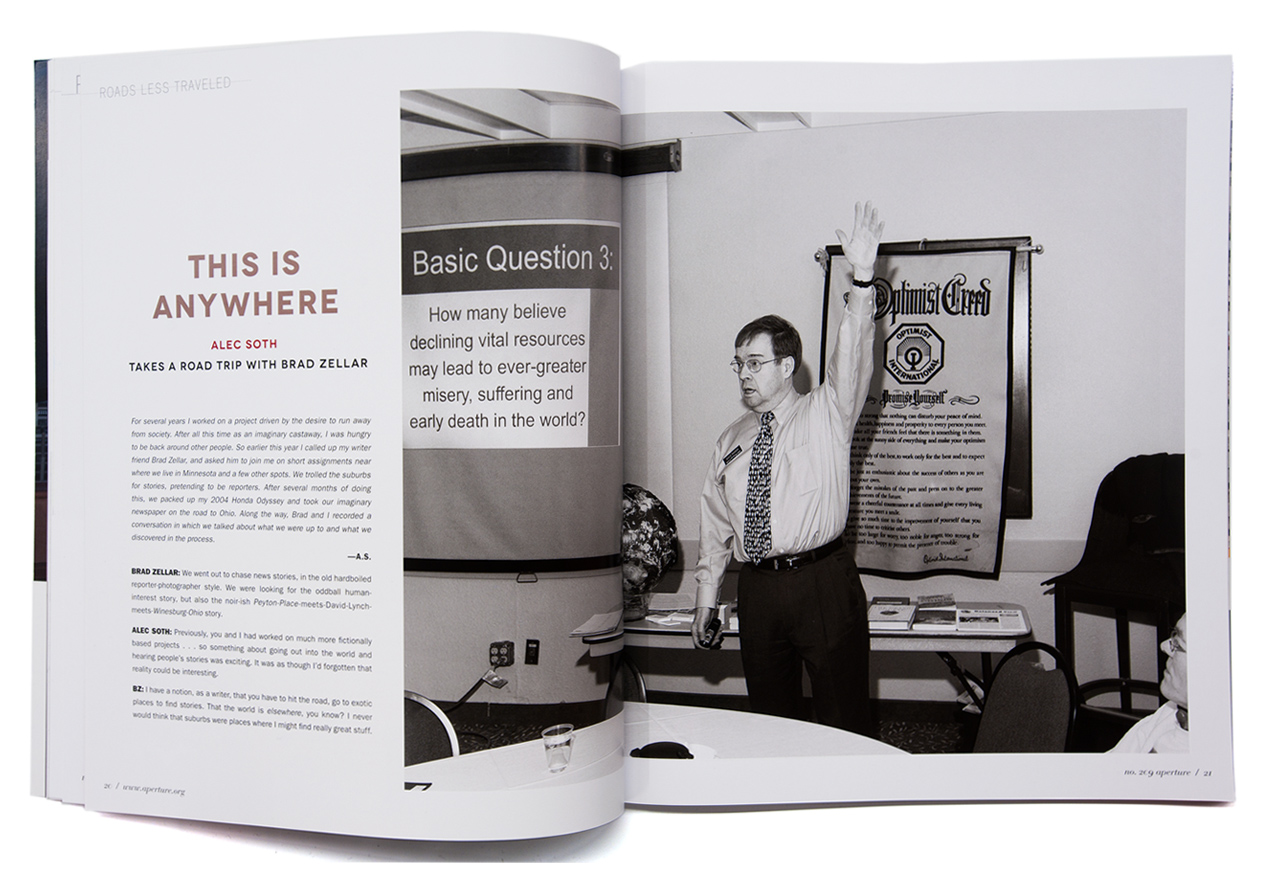
Order your copy HERE

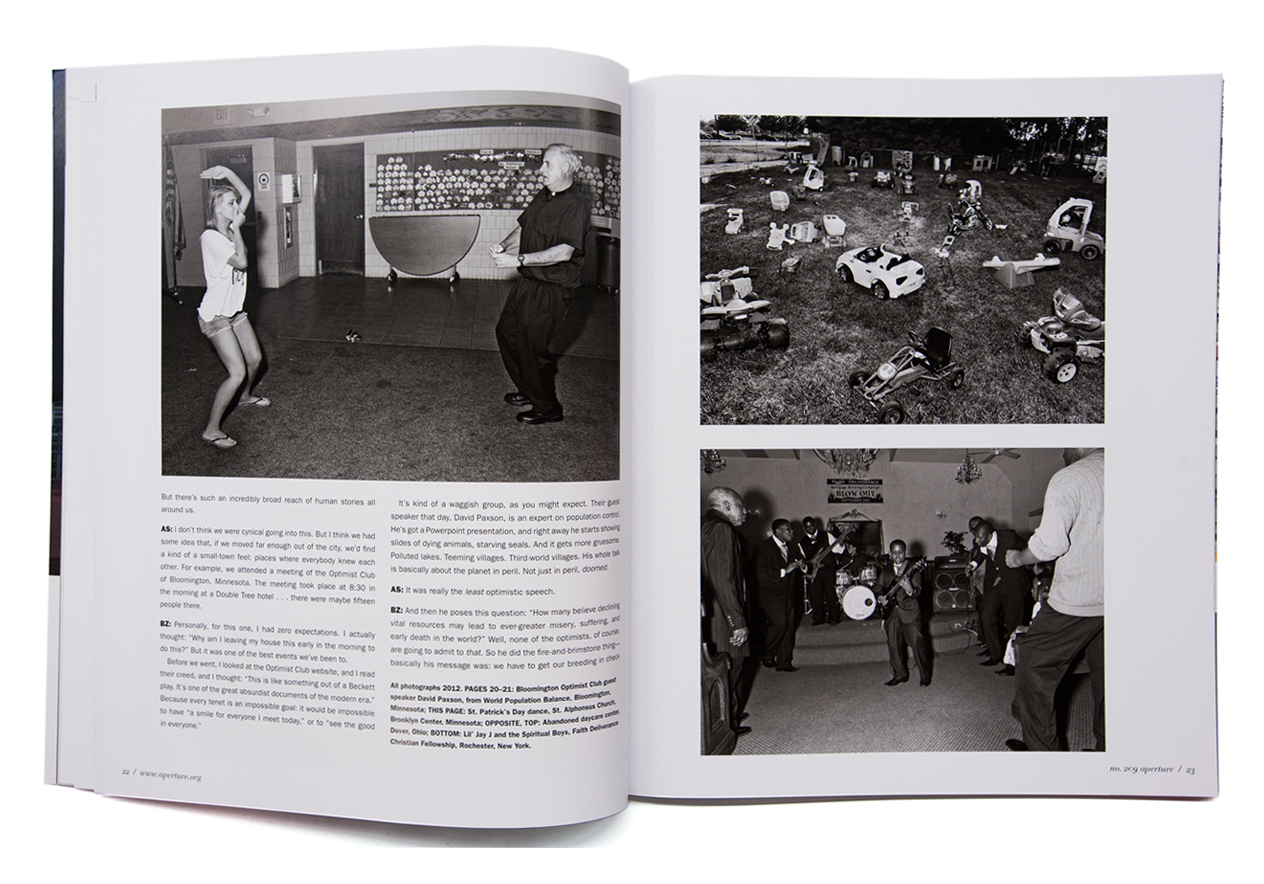
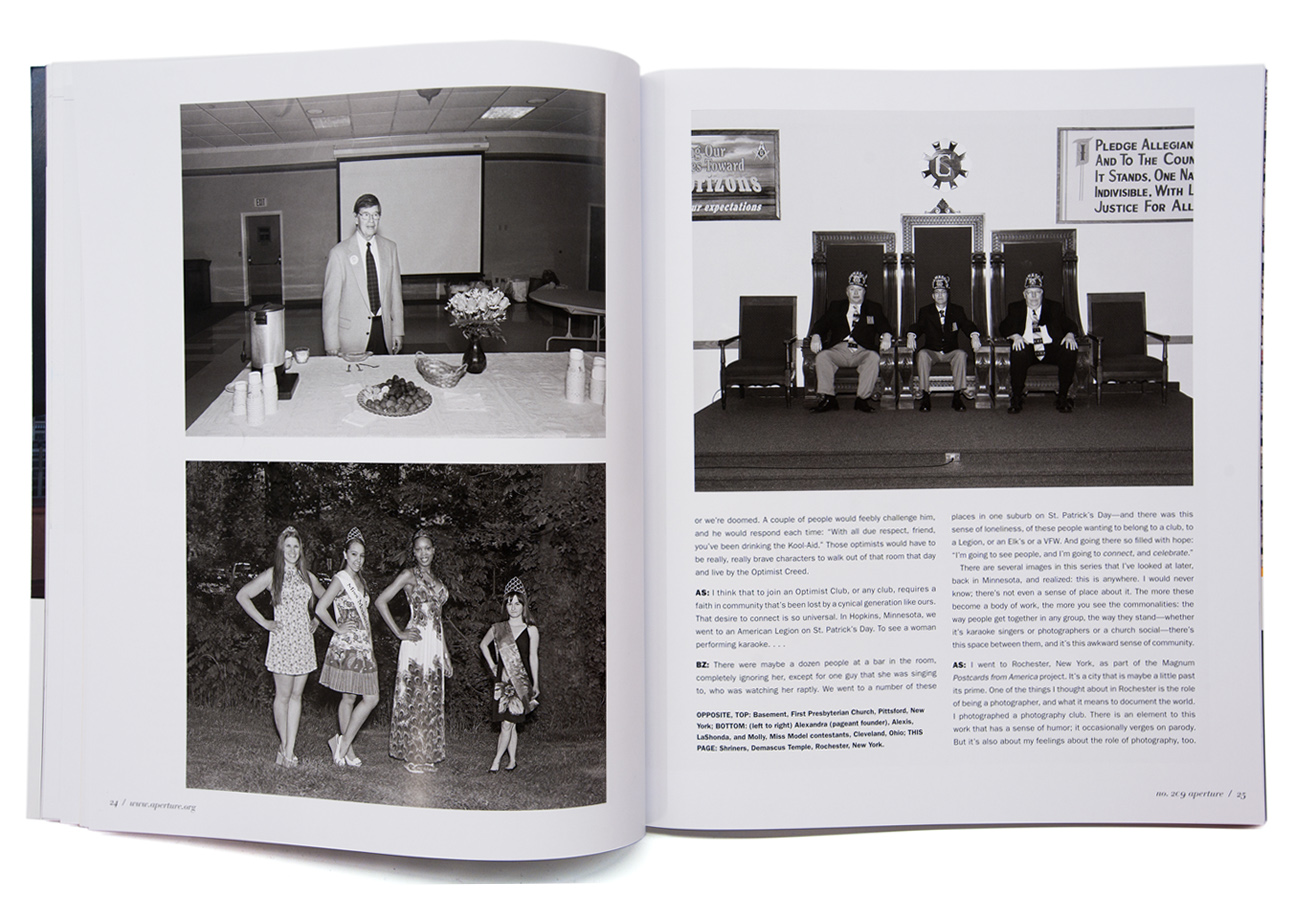
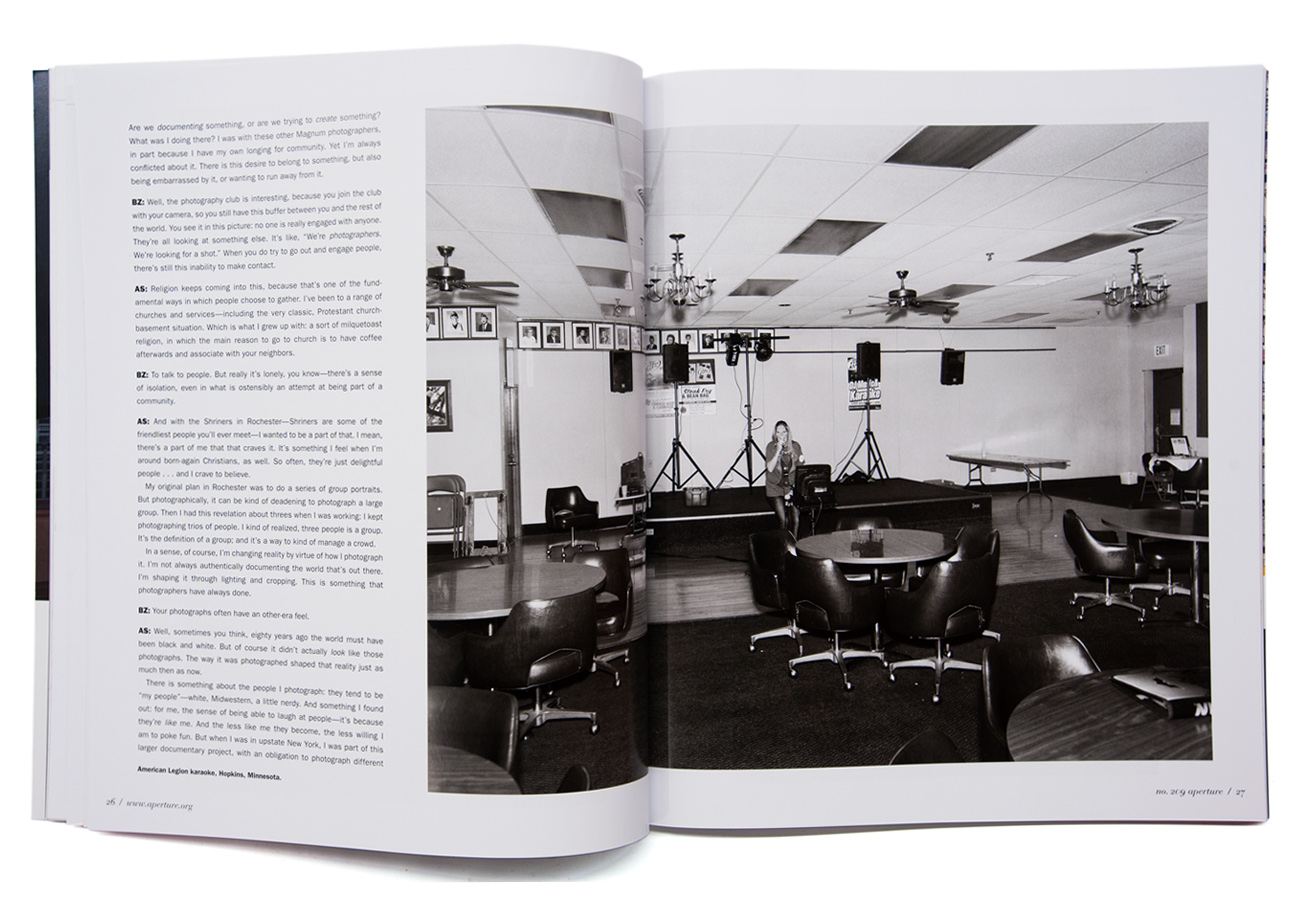

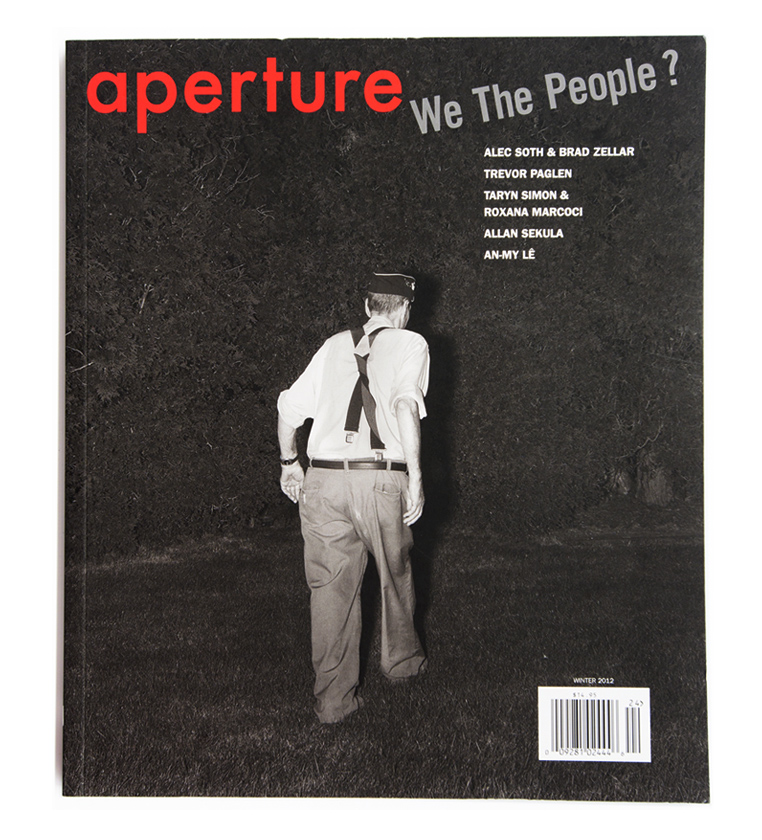
SWEET!!!
Love this!! Can’t wait to get a copy.
I can’t wait to get mine in the mail.
I’m intrigued by the mention of Weegee, since so many of the images in Brad’s collection Suburban World: The Norling Photographs (for which Alec did the foreword) make me think of Norling as a suburban Twin Cities cousin to Weegee. Are there contemporary Weegees and Norlings out there? While one can see how Weegee was peering over Alec’s shoulder in this work, he seems like but one of a number of “angels” or muses that reside there from time to time…
Now I’m pondering the notion of some lonely soul with a police scanner app on their smartphone sitting ready with their digital SLR and GPS to run out and capture the latest crime. Do you all suppose this happens? Or are cameras now so much more pervasive–and so much less intrusive–than a Speed Graphic with a blinding flash, that our contemporary world simply doesn’t LOOK like that of Norling and Weegee?